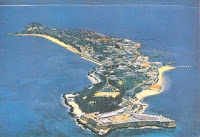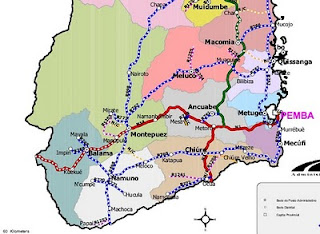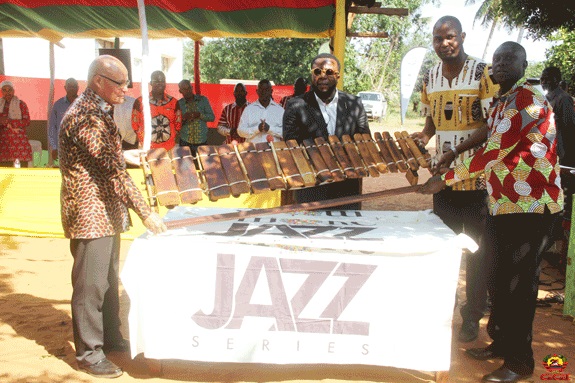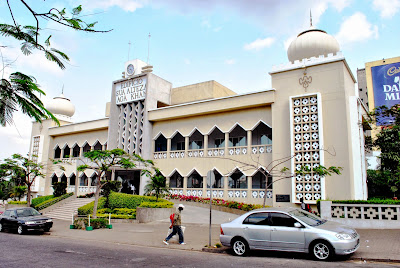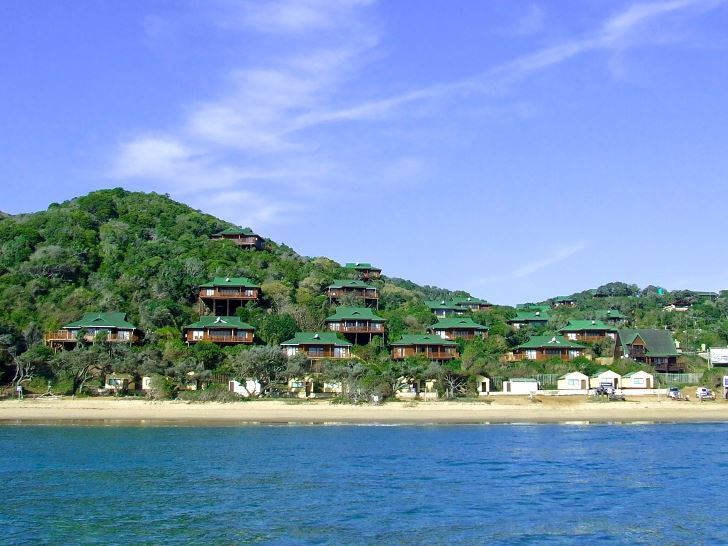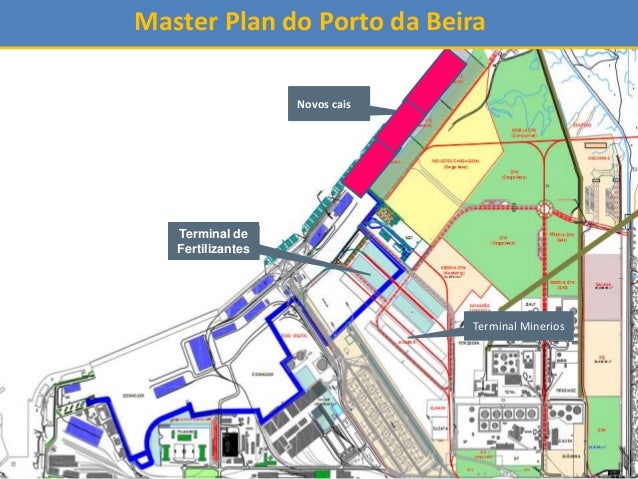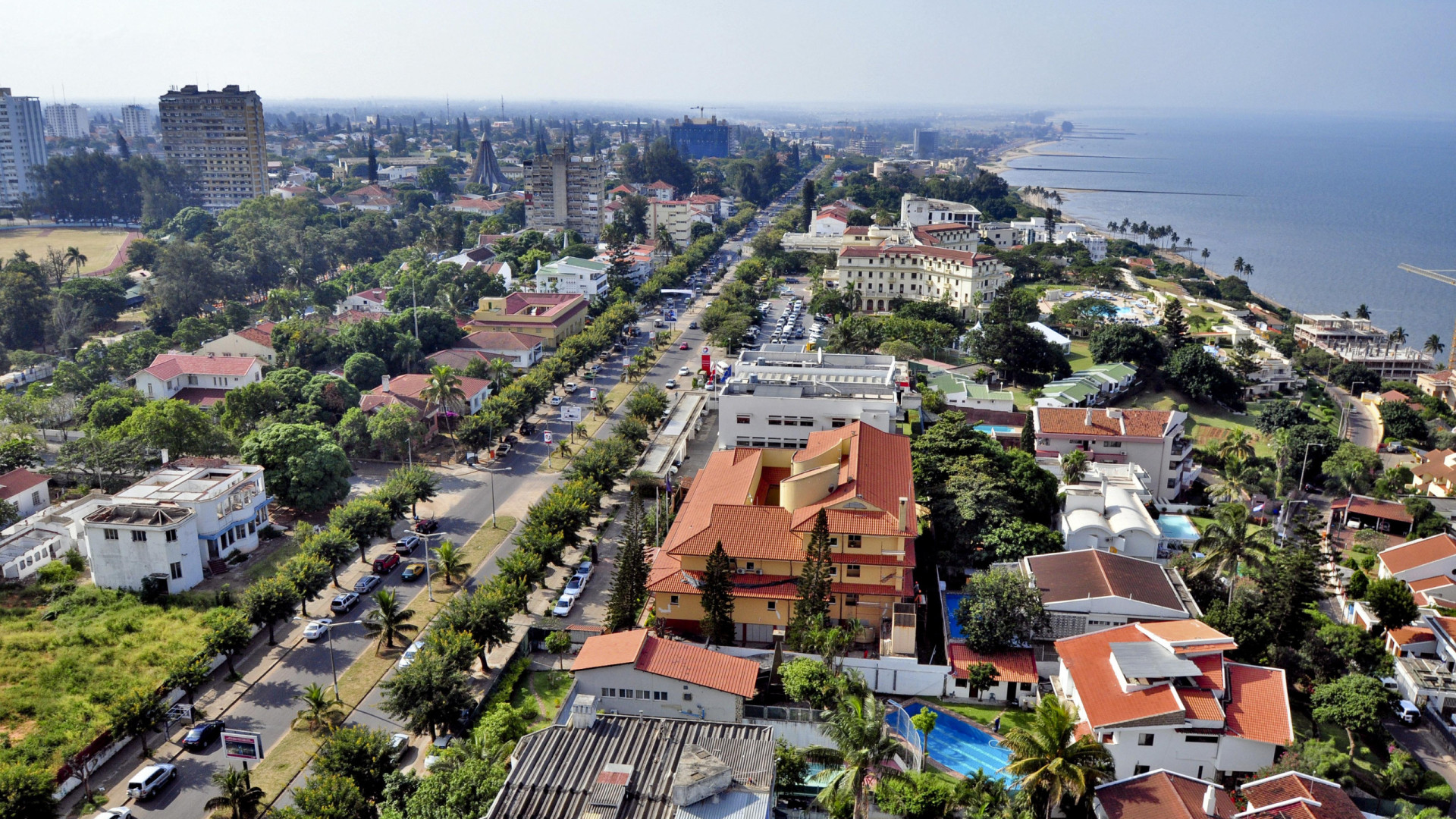 The city of
Ilha de Moçambique, in Nampula province, is hosting a visual arts workshop
marking the start of the island’s second centenary celebrations, scheduled for
September 17 next year. The event will include painting, children’s drawing,
ceramics and sculptures made from wood and recycled material. Artist Paulo
César Magalhães says the workshop in the Corredor dos Arcos is the combined
initiative of three Mozambican artists based in Maputo, Nampula and Ilha de
Moçambique, sponsored by arts organisation Traços e Tons. In addition to
celebrating the 200 years of the Island of Mozambique, the idea is to create
initiatives of this nature outside Maputo, exploring other ways of arousing
interest to artists and the public and thus promote cultural tourism.
The city of
Ilha de Moçambique, in Nampula province, is hosting a visual arts workshop
marking the start of the island’s second centenary celebrations, scheduled for
September 17 next year. The event will include painting, children’s drawing,
ceramics and sculptures made from wood and recycled material. Artist Paulo
César Magalhães says the workshop in the Corredor dos Arcos is the combined
initiative of three Mozambican artists based in Maputo, Nampula and Ilha de
Moçambique, sponsored by arts organisation Traços e Tons. In addition to
celebrating the 200 years of the Island of Mozambique, the idea is to create
initiatives of this nature outside Maputo, exploring other ways of arousing
interest to artists and the public and thus promote cultural tourism.
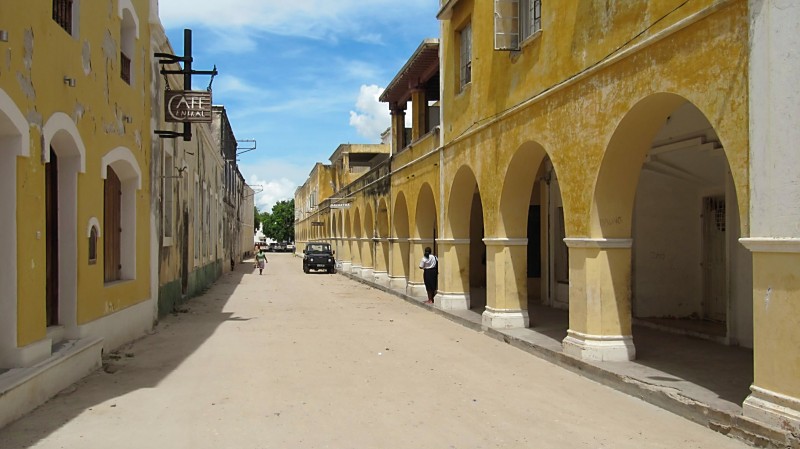
“We also
want to get people interested in the cultural, social and anthropological
history of the first capital of Mozambique, and to promote its tourist
potential, while also contributing to revenue and affirm its World Heritage
status,” he said.Titos Pelembe, vice president of the Kulungwana Cultural
Development Association, explains that the artists will produce a wide range of
works over the seven days, mainly exploring recycled materials and culminating
in a collective exhibition of the resulting artistic creations.
Helena
Perestrelo is another participant of this workshop, with over 45 years of
experience in the field of vidual arts, including painting postcards and
portraits of children on recycled cardboard and paper using acrylic and other
materials.
 For her, this
is an opportunity to interact with other Mozambican artists, exchange
experiences and, above all, see other dynamics and mechanisms of artistic
production.Ilha de Moçambique has scheduled several artistic and cultural
nature events to celebrate this year’s anniversary on September 17.
For her, this
is an opportunity to interact with other Mozambican artists, exchange
experiences and, above all, see other dynamics and mechanisms of artistic
production.Ilha de Moçambique has scheduled several artistic and cultural
nature events to celebrate this year’s anniversary on September 17.
The Arcos
Corridor, where the workshop will take place, is easily accessible in the old
part of the Island of Mozambique and has been refurbished to host events of an
artistic and cultural nature.
The island
city of Ilha de Moçambique, which gave the country is name, is a municipality
in the province of Nampula with an elected local government. It acquired city
status in 1818 and was the first capital of Mozambique, until 1822.Located on a
coral reef, the Island is connected to the mainland by a 3.80 km long bridge
designed by engineer Edgar Cardoso. Built in the 1960s, the bridge has recently
undergone major restoration works.

When Vasco da
Gama arrived in 1498, the island was ruled by the Sultan of Zanzibar and used
by the Arabs in their trade with the Red Sea, Persia, India and the islands of
the Indian Ocean. Thanks to its strategic geographical situation, the city soon
became a mandatory stopover point for round trips between Lisbon and Goa, and a
profitable commercial warehouse.The interest revealed by other European powers
justified the construction of its vast and valuable architectural heritage,
which began in 1507 when the Portuguese built the Tower of St. Gabriel, today
part of the Palace of the Captain General.
 Classified as
a World Heritage Site by the United Nations Educational, Scientific and
Cultural Organisation (UNESCO) in 1991, the city has, among other valuable
monuments, the Chapel of Our Lady of the Baluarte, dated 1522, at the north end
of the island (the only example of Manueline architecture in Mozambique).
Classified as
a World Heritage Site by the United Nations Educational, Scientific and
Cultural Organisation (UNESCO) in 1991, the city has, among other valuable
monuments, the Chapel of Our Lady of the Baluarte, dated 1522, at the north end
of the island (the only example of Manueline architecture in Mozambique).
There
is also the Fortress of St. Sebastian, the largest in Southern Africa, which
was erected between 1588 and 1620, with stones from ships’ ballast, some of
which are still visible on the nearest beach.
The island is
divided in two parts: the “Stone City” in the north where the main monuments
are located, and “Macuti City” in the south, where buildings are made from
coconut palms. Most residents live by fishing, with some agricultural activity
and handicrafts.The present
population are mainly descendants of Bantu immigrants, but the centuries of
Arab influence is still evident today in the local language, Naharsa.
 IACM
chief executive Joao de Abreu said the new regulation provides for compensation
for passengers who are denied the right to board a flight for which they are
booked.It also contains provisions for non-compliance by airlines with the
right to reimburse or re-route passengers and to provide due logistical
assistance.Other issues to be addressed by the proposed regulation include
cancellations or delays of the flights as well as damage, loss and delay of
arrival of baggage.
IACM
chief executive Joao de Abreu said the new regulation provides for compensation
for passengers who are denied the right to board a flight for which they are
booked.It also contains provisions for non-compliance by airlines with the
right to reimburse or re-route passengers and to provide due logistical
assistance.Other issues to be addressed by the proposed regulation include
cancellations or delays of the flights as well as damage, loss and delay of
arrival of baggage.